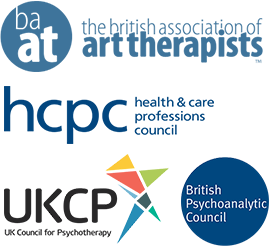Analytical Psychology
In all Jungian psychotherapy a very deep relationship is developed over time, between the client and analyst.
There are a number of highly influential individuals in the world of psychoanalysis. One of these leaders is Carl Gustav Jung, and he is considered the founder of analytical psychology.
Many people have heard of Jung's work, but often through inaccurate references in films or literature. In reality, this is an extremely personal and in-depth type of therapy that allows the client and the psychoanalyst to work together, to develop an understanding of the symbolic experiences that have occurred in the client's past. In Jungian psychotherapy the goal is on understanding the personal history of the individual, using this to create an understanding of the present. That understanding will in turn shape the future, including how the individual grows and develops.
In all Jungian psychotherapy the individual client is the centre. There is a very deep relationship between client and analyst, which is developed over time and requires the therapist to develop a significant rapport with the client. The therapist is fully present and contributes to the discussion, while also showing empathy and understanding of the patient's experiences.
In this way the client and the therapist develop a trusting and empathic relationship, which provides a safe and comfortable environment for the deep exploration of often challenging memories and life experiences.
Creating Harmony
When the subconscious or unknown part of the mind and the conscious, or known part, are not in harmony, the individual often experiences a sense of being disconnected, or distressed.
This often translates into or manifests as destructive thoughts and problematic behaviours. When the subconscious and conscious mind are disconnected, the individual may experience depression, a sense of generalised or specialised anxiety, or an overwhelming sense that something is out of balance in their mental and emotional state.
The result of this mental and emotional unrest can translate into more physical behaviours, including addiction to alcohol, drugs, food, sex or gambling, or difficulty in regulating otherwise healthy behaviours such as exercise or work.
It is only through deep-level exploration and talking about dreams, which Jung recognised as messages from the subconscious to the conscious mind, that these issues can be brought to light, explored and reacted to in a positive and effective way.
The Process
As a recognised and effective psychotherapy method analytical psychology is very responsive to the client; the analyst does not guide or direct the sessions but rather selects the appropriate approach to the session, based on the needs of the client.
This is an intensive type of treatment and it is often a lengthy process, allowing the client to uncover previously suppressed or repressed memories in a safe, natural and completely confidential environment. Using a holistic approach the analyst supports the client in their journey, posing the questions that are necessary to allow the client to delve deeper into understanding his or her life and past experiences. Through this understanding the client can develop a new understanding of the motivation behind their problematic behaviours. And with this understanding comes the pathway to change.


